Column by Mahfuz Anam: Only journalists can protect journalism
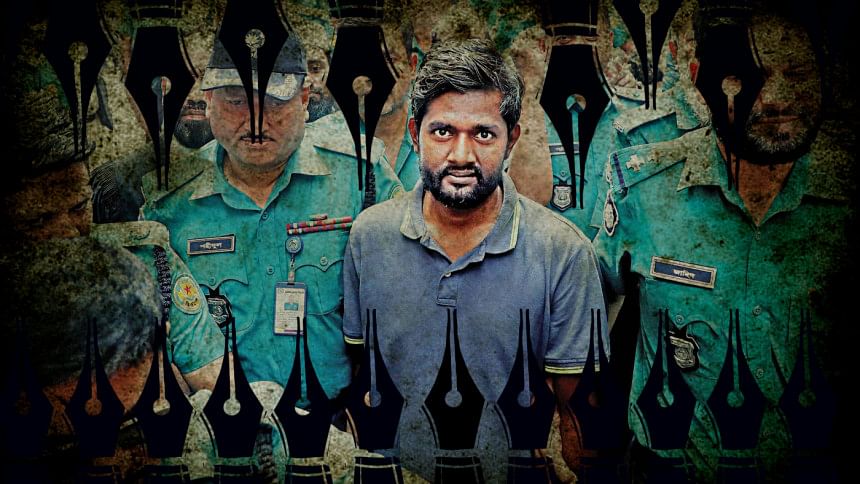
This piece is not to contest but to contend, not to rebut but to debate, not to counter but to inquire, not to make sweeping judgement without facts, but to judge on the basis of facts, not to put labels because it suits one's point of view, but to categorise the issue as it confronts us. Most importantly, it is not to point a finger at others, but to point a finger at ourselves to ask what the state of our beloved profession is, to pursue which we risk our lives and livelihoods. Finally, this piece is to most earnestly and humbly encourage my fellow journalists to introspect, to ask, to search – in their work, but more importantly in their hearts and minds – as to where objective journalism ends and political journalism begins.
This piece is also to sincerely urge my fellow journalists to think most seriously about how to address the problems of mistakes that inevitably occur in print, electronic and online media.
On an average, the legacy media – others may do less – publishes nearly 250-300 reports every 24 hours. If we include photographs, cartoons (political types are conspicuously absent these days, leading to the question as to why), infographics, photo captions, etc, the number reaches nearly 350. If we add multimedia content to that, we climb to an even higher figure. To tackle such a huge number of items – from gathering facts, writing, editing, to page setting, inserting photos, caption writing, audio recording, filming – is a Himalayan task, to say the least. It is to the enormous credit of our journalist colleagues that mistakes occur only very rarely. If "to err is human," then mistakes will occur however hard we try. And hence, we must address it urgently.
There are, however, tried and tested and universally accepted laid down rules to handle mistakes made by media outlets. These have come after many trials and errors and on the basis of decades of experience from across the world. Do we follow them? If not, should we not? And shouldn't we, the journalists, be at the forefront to demand adherence to said rules? Are we doing so? Or are we busy demonising our fellow journalists for mistakes that are easily explainable journalistically?
That should lead the journalists to this question: what triggered such frenzied activism among some of us to denigrate our most prestigious Bangla daily? Was the coverage of the "mistake" of Prothom Alo done journalistically? Was the search for Prothom Alo's so-called "motives" factually founded? Why did "opinions" start to be treated like "facts"? Why was a newspaper not judged by its long track record, but only by one or two mistakes, which were then interpreted according to the views of the critics without reference to facts? Would it be totally illogical on our part to conclude that no journalistic norms were followed while castigating Prothom Alo? Would we be wrong to further conclude that it was not Prothom Alo that had an agenda, but others – and the agenda was to intimidate an independent voice and force it towards greater self-censorship?
The case in hand is as follows. The editor of Prothom Alo was sued under the anti-media Digital Security Act (DSA). Its Savar correspondent was literally kidnapped when, at dawn, law enforcement members mostly in plain clothes descended in a gang-like fashion on his house. They picked him up without a warrant, did not tell the victim or his family why he was being taken in, and where he was being taken to. He was kept incommunicado for the next 30 hours. He was then produced before a court and sent to jail.
The question before the journalists should have been: what was his crime? Misreporting? Which part of his report was false? The whole controversy centred around the use of a photo of a boy and the quote that belonged to a day labourer, which was clearly attributed. As journalists, do we not know that a reporter is neither responsible for the heading of a story nor for its display? In none of the statements, save that of the DRU, were questions asked as to why the said reporter was denied all his constitutional rights when he was "picked up" without any legal basis whatsoever. So do our rights stand for nothing when a high-up orders one of us to be "picked up"? Shouldn't journalists have asked that question?
The statements condemned Prothom Alo for "damaging the image of the country." Shouldn't journalists raise their voice in unison that no citizen, let alone a fellow journalist, can be sued or arrested on such an imprecise, undefined and subjective notion as "damaging the image"? A law by definition cannot be vague. It has to be clear, unambiguous, and specific. Otherwise, it's not a law but an instrument of harassment and oppression, as the DSA has become.
More fundamentally, what is "damaging the image" to a politician could easily be "investigative reporting" to a journalist. Somebody can claim that reporting on Bangabazar fire, road accidents, adulterated medicine, air pollution, sound pollution, river encroachment, arsenic in water, unbridled corruption, most bus and truck drivers having fake licences and their vehicles having no fitness certificates, all directly or indirectly impinge on the image of the country. But is reporting on them demeaning our independence? If, as journalists, we do not see the public interest in all this, then why call ourselves journalists? We might as well close shop and open PR agencies.
The government, the ruling party, and those who have issued the recent statements have forgotten the role Prothom Alo played during BNP's rule in highlighting corruption and exposing the excesses committed by Tareque Zia and Hawa Bhaban. They have forgotten the newspaper's role in exposing the heinous attempt to divert the investigation into the assassination attempt on the present prime minister. Who exposed the "Joj Mia" ploy? Could any other paper do the exposés that it did?
The accusers of Prothom Alo argue that it was not a mistake they made, but a deliberate action in fulfilment of their longstanding "agenda," which is to destabilise our "independence and make our Liberation War questionable." A quote from one day-labourer juxtaposed on a photo of a child can do all that? Are the claims based on facts or any content analysis of the paper? Where is this coming from? If the accusers are correct, then we must be reading different newspapers. According to Prothom Alo critics, after 50 years of establishment of our state, our Liberation War and our independence remain so fragile, so weak, so full of doubt that one report sets these foundational pillars tottering? Are they not making a mockery of everything we stand for? This is when we are about to graduate into the Developing Country status. Who is damaging Bangladesh's reputation?
On the other side, what is the long-term track record of Prothom Alo? Ever since its inception, it has been a staunch supporter of everything Bangladesh stands for – our Language Movement, the movements of the 50s, 60s and 70s, our Liberation War, Bangabandhu's seminal role, secularism, democracy, political, economic and cultural rights of the people, etc. Its role against extremism is second to none. It celebrates our economic growth and every other success far more enthusiastically than many of its critics.
The government, the ruling party, and those who have issued the recent statements have forgotten the role Prothom Alo played during BNP's rule in highlighting corruption and exposing the excesses committed by Tareque Zia and Hawa Bhaban. They have forgotten the newspaper's role in exposing the heinous attempt to divert the investigation into the assassination attempt on the present prime minister. Who exposed the "Joj Mia" ploy? Could any other paper do the exposés that it did? Prothom Alo exposed the BNP government's nefarious attempt to shield the unearthing of the plot behind the death of 24 Awami Leaguers, including the party's women's wing leader Ivy Rahman, in the same incident. Who exposed the voter list fraud? Who repeatedly wrote about the Hawa Bhaban and Bangabhaban connection during Iajuddin Ahmed's presidency? What was Prothom Alo's role during the BDR mutiny, which was clear and present danger to the newly formed Awami League government?
Prothom Alo played the usual role that an independent media plays – that of a "watchdog" on the power of the day. The paper has played the same professional role during the Awami League's 14-year tenure. The Awami League leaders and ministers may forget that. But should the journalists?
It is my view that Prothom Alo's mistake (which can itself be debated in a journalism class. However, I am accepting it for the sake of my arguments) was turned into a political ploy to demonise a professional media outlet and pressurise it to change its independent stance. Otherwise, how can the "Bashanti" issue (concerning a photograph published in Ittefaq in 1974) suddenly come up. On what basis is the comparison being done with the recent piece in Prothom Alo? It was deliberately done to drive fear and bring partisan political factors into play to confuse us.
All the talk of Prothom Alo's so-called controversial role on issues relating to our Liberation War, independence struggle and Bangladesh's economic success has no basis in facts. Whatever critical reporting the paper did and does fall within its moral and professional role of keeping power accountable. It is not for nothing that Prothom Alo has gained such public acceptance and adulation both at home and among Bangladeshis abroad.
As the heading of my piece states, only we journalists can protect our profession. Everybody else, in the name of helping journalism, wants to use us. When the government extends a helping hand, it wants journalists to toe its line. When the business community offers help, the price is to overlook their bending of the law. When law enforcers act friendly, they want us to soften our reports on their circumvention of the rules. When politicians praise us, it is only because they are not, at that moment, on the buttered side of the bread and are certain to sing the opposite tune once in power. And the story goes on. Nobody wants us to be independent, to be objective and say the truth. And that's where our challenge lies. And that's why we must be together in spite of our differences.
That does not mean we will not differ, sometimes even vigorously so on social, cultural and, most importantly, political issues. As journalists, we may hold diametrically opposite political views, but we can never allow those differences to affect our journalism. As Daniel Patrick Moynihan, a US senator from New York, once said, "You are entitled to your opinion, but you are not entitled to your own facts."
I am in my twilight years of journalism. Perhaps only a few years of it are still left. I started with the Bangladesh Observer in April 1972, immediately on return from the most glorious phase of my life when, with millions of others, it was my proud privilege to be a member of the Mukti Bahini. After co-founding it, I have spent the last 32 years with The Daily Star. So I can claim to have a modicum of experience as a journalist.
Since my time is limited, it is my younger colleagues who will face the future, and it is to them I have addressed this piece. I unreservedly and unequivocally say that journalism is one of the noblest of professions there is. Like education, a society needs journalism to grow intellectually, democratically, equitably, and justly. It needs it to ensure fairness and to give protection to individuals and groups that power oppresses. It needs it to keep leaders in check and administrators accountable. Most importantly, society needs journalism to enjoy all the beauty that freedom offers.
Condemn me to your heart's content if you find what I have said above unacceptable, but please don't fail to ask the questions I have raised, the most vital of which is: are we, as journalists, able to think freely, or are we being clouded by prejudice, politics and financial interest?
The answer to it will determine the future of our journalism. Please remember: only journalists can protect journalism.
Mahfuz Anam is the editor and publisher of The Daily Star.

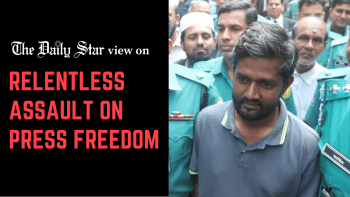
 For all latest news, follow The Daily Star's Google News channel.
For all latest news, follow The Daily Star's Google News channel. 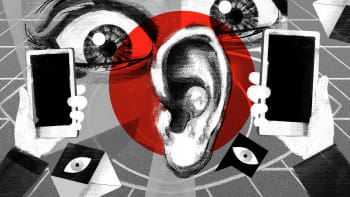
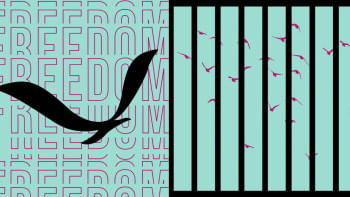
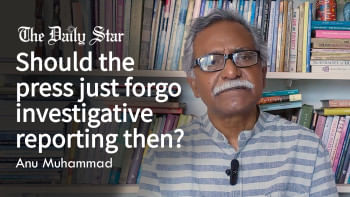
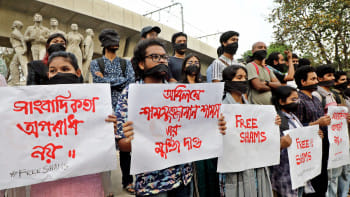

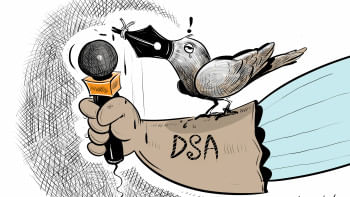
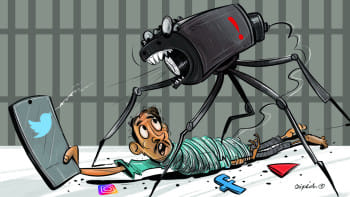




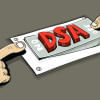
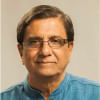

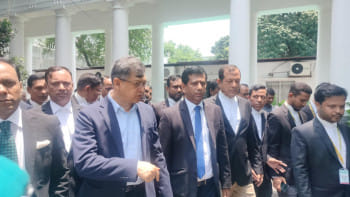
Comments